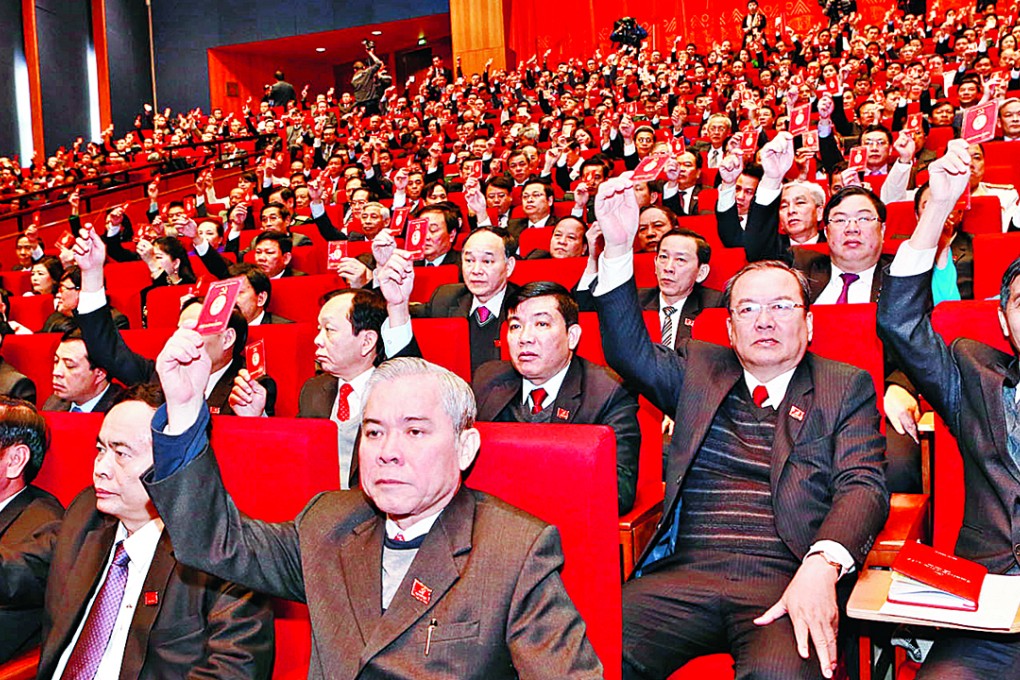Key questions over security and economic reform await Trong after being re-elected to top job in Vietnam’s ruling party
Reigning party chief tightens hold on power and will serve a second consecutive term after seeing off challenge from outgoing reform-minded prime minister.

In what could be an equivalent of Vietnam’s House of Cards, the country’s Communist Party chief has retained power after an intense political rivalry. As business returns to normal, analysts said there would be little dramatic change in the country’s diplomatic and economic policies.
In Nguyen Phu Trong’s second stint as the party’s general secretary, Hanoi will continue its current course of guarding against China’s maritime ambitions while moving toward a more open, market-oriented economy, analysts said.
The party elites on Wednesday re-elected Trong, 71, for another five years in office, ending months of competition with Prime Minister Nguyen Tan Dung.
Trong’s approach to China is soft on the outside but firm inside
The two men are regularly characterised as occupying opposite ends of the political spectrum, with Trong labelled as a conservative pro-China figure and Dung as a liberal pro-West alternative.
Had Dung won the election, held at the five-yearly party congress that concluded yesterday, he may have accelerated economic reforms and steered Vietnam closer to the West. However, some analysts resisted the suggestion that Trong and Dung represent polar opposites.
“Trong’s approach to China is soft on the outside but firm inside,” said Alexander Vuving, an associate professor at the Asia-Pacific Centre for Security Studies in Honolulu.
“Dung’s approach to China combines tough rhetoric with economic engagement, which has tightened Vietnam’s economic dependence on China.”
